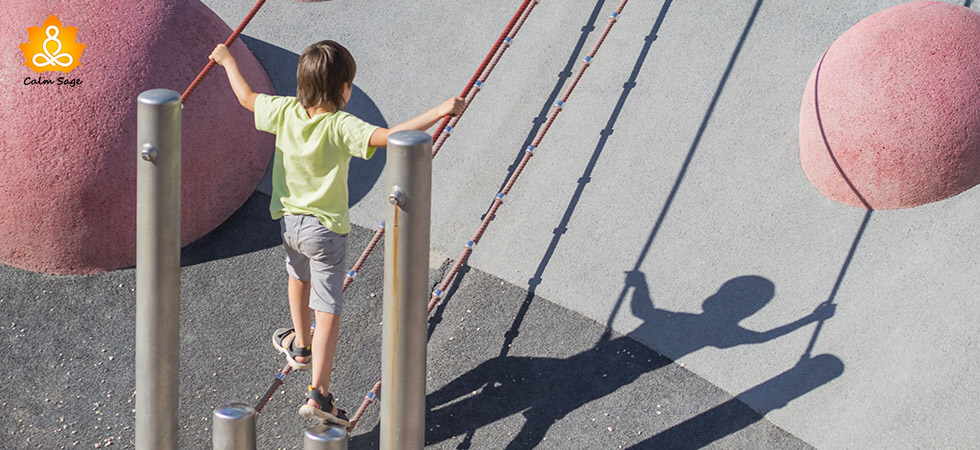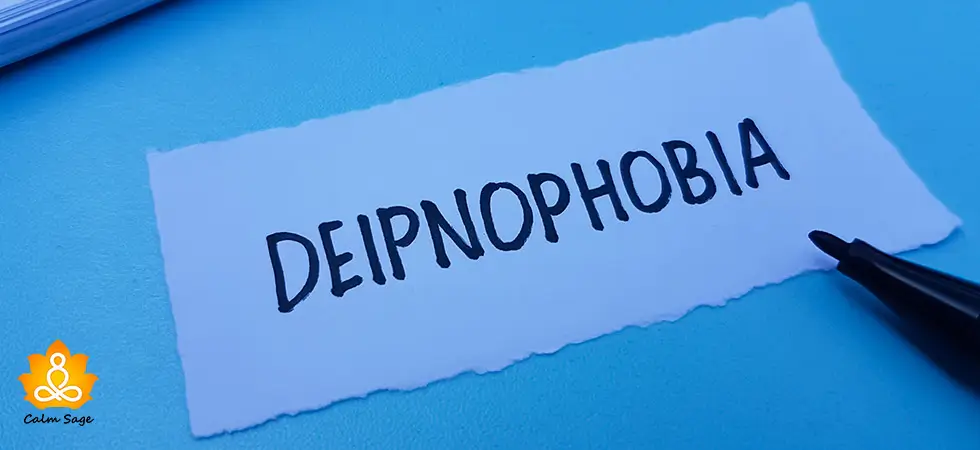Neophobia (Fear Of New Things) : Symptoms, Causes, Diagnosis andTreatment

Neophobia is generally a fear of new things. Neophobia is a type of phobia that is a little bit complicated to understand because it is not listed in the 5th Edition of the “Diagnostic and Statistical Manual of Mental Disorders.” According to psychology, neophobia is a tendency to dislike something newly introduced; it could be anything, new food, or new ideas. To put it in a nutshell…
Neophobia is an irrational fear or persistent fear of change related to something new, strange, or unfamiliar. It is mostly associated with a fear of new foods, places, or ideas.
But, it’s so severe that it can impact someone’s life negatively, especially in relationships, working environments, and other experiences. Neophobia varies from mild to severe. In this blog, we will be exploring what neophobia is, its symptoms, causes, and treatment along with self-help tips. So, let’s get started.
Symptoms of Neophobia
Signs and symptoms of neophobia can range from psychological, behavioral, and physical symptoms. Below listed are some of the common physical symptoms of neophobia:
- Breathlessness
- Nausea
- Increased heart rate
- Dizziness
- Trembling or shaking
Below listed are some of the psychological symptoms of neophobia:
- Anxiety
- Sense of unreality
- Fear of dying
- Stress
- Negative thoughts
Below listed are some of the behavioral symptoms of neophobia:
- Extreme distress
- Avoiding new experiences including new foods, places, and more
- Welcoming new changes with a lot of negative thoughts
The fact is that psychological and physical responses happen when an individual is confronted or exposed to new things. This phobia challenges human needs with the fear of unfamiliarity. When the symptoms are mild, it’s not easy to recognize the symptoms as fear because it looks comforting especially when someone chooses to prefer a routine over trying out new things.
However, when the symptoms are in severe form, they can have life-limiting impacts on an individual struggling with neophobia.
Causes of Neophobia
Neophobia can be caused or developed by several factors. According to the research, having a family member with anxiety increases the chance of developing any kind of phobia. Traumatic events or upsetting situations can also play a major role in the development of neophobia.
If we talk specifically about neophobia, it can be developed due to distressing experiences, especially while trying out new things. Such situations can be the onset of this phobia.
Neophobia can also be caused by the existence of other phobias such as fear of failure or fear of success. If we observe, these two phobias are life-changing and potentially risk-taking. People struggling with such phobias often miss counting the potential benefits of success and somehow outweigh the potential risks. Generally, this is caused by habits.
When we spend most of our time in the same house, office, car, food, and schedule, we are less likely to adapt to new things due to habits.
Familiarity with the same things, space, and food can also impact the preferences of people. The more an individual is exposed to things, the more they will prefer them, this is known as the exposure effect. However, sticking to comforting things can have negative impacts on mental health.
For example, eating comforting foods can reduce the exposure effect and increase familiarity. Constantly choosing comfort or familiarity can become distressing, excessive, and life-limiting after some time.
Living Life with Neophobia (Complications & Risks)
Mild fear of trying out new things does not cause significant problems but it can cause boredom and can influence people to consciously make an effort to step outside their comfort zone. However, neophobia in its severe form can cause severe impacts on an individual’s regular life.
It feels somehow comforting or easy to follow the same routine again and again and can feel stuck in a rut or someone intentionally avoids risks to live a fulfilled life.
Some people consciously make decisions to avoid risk-taking behaviors, some refuse to go to new places, and some refuse to try new opportunities at work can have serious consequences on someone’s personal life as well. In the next section, let’s understand the complications of neophobia by measuring different factors:
Neophobia in Children
Neophobia in children is quite common because the entire world is a new experience to them and sometimes, they resist trying new things because once they get comfortable with something they wish to keep it constant in their widening world. As children age, they might seek familiar support to look like they are in control.
However, with the help of the right parental support, children can learn to try out new things to learn, experience, and challenge their abilities.
Neophobia in Older Adults
Neophobia in older adults is quite different from neophobia in children. The fact is that older adults have seen it all and now they resist trying out new things due to traumatic experiences, negative thoughts, and fear of failure. Likewise, children, also seek the support of their familiar or comfortable things to make them feel like they are in control.
Having the same routine and resisting change does not mean a person is struggling with neophobia. Neophobia in older adults can only be determined when it’s excessive, causing distress, and limiting the ability to function in everyday life. The same factor applies to determining neophobia in children.
Cenophobia
Cenophobia known as the fear of new ideas is the sub-section of neophobia wherein an individual halts their progress or growth because they are reluctant to accept new ideas or resist change.
While it is considered to be smart to not accept every newly introduced idea, it is also not so smart to not take risks in life to reach goals. Sometimes, trying new thinking, new ways, or new styles can catalyze your innovation, success, and problem-solving powers.
Food Neophobia
Food neophobia is referred to the “picky eaters” who willingly resist themselves to try out new foods. Food neophobia is commonly seen in children who only eat familiar food items. Most adults carry food neophobia from their childhood. Such “picky eating” habits can have severe impacts on nutrition, health, and eating habits. Most specifically, it stops them from adjusting to new things, new tastes, and new food cultures.
Diagnosis & Treatment of Neophobia
Since neophobia is not officially listed in the Diagnostic and Statistical Manual of Mental Disorder 5th Edition. People can still get a proper diagnosis for neophobia taking the help of the specific phobia section available in the DSM-5.
A mental health professional is likely to evaluate diagnosis based on:
- Presence of excessive fear or unreasonable response to new things
- Immediate fearful response when exposed to new things
- Extreme distress while trying to avoid new things or encountering them
To be diagnosed with neophobia or any kind of specific phobia, an individual must have undefined fear for at least six months or longer. If you think you or your loved one might be struggling with neophobia or any other specific phobia, you should get registered with mental health professional.
After getting a proper diagnosis, your mental health professional is likely to suggest Cognitive Behavioral Therapy (CBT). CBT is one of the best and most effective techniques applied to overcome neophobia or other specific phobias. CBT focuses on changing negative thinking patterns with positive or helping thoughts.
It can help patients get over fear and avoidance behaviors. CBT helps in changing fearful behaviors to excitement and anticipation.
Exposure therapy is one of the major components of CBT that helps in overcoming the fear by gradually and progressively exposing people to the source of their feeling. The goal of exposure therapy is to diminish the fear by exposing techniques.
While treating neophobia with CBT and exposure therapy, people are exposed gradually to new things. Eventually, they build up the strength to try out new things without fear about them.
Quick Self-Help Tips to Manage Neophobia
Therapy options like exposure therapy and CBT are effective in managing or dealing with neophobia. You can also take the help of the below-mentioned quick self-help tips to manage your anxiety or stress related to neophobia:
- Begin with small things and progress gradually.
- Use relaxation techniques to cope with anxiety and stress
- Try to distract yourself from unfamiliar things or feelings and focus on your goals
I hope this blog helps you with an overview of neophobia which is the fear of new things. Comment down and share your views on the same. For more such content, connect with us on all social media platforms.
Thanks for reading!




















